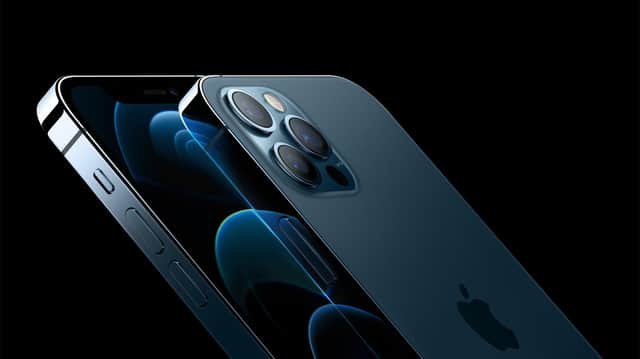Will the iPhone 12 put those 5G conspiracy theories to rest?


There has been a lot of nonsense talked this year about 5G, especially in the wake of the Covid pandemic, so let’s put things in perspective. 5G represents the fifth generation of the technology that made portable handsets possible in the first place. The first generation, which dates from the early 1980s, allowed for phone calling and the second, a decade later, added the facility for text messaging and later email and basic web browsing. The third and fourth generations – 3G and 4G – brought the faster internet access we enjoy today, followed by video calls and movie streaming. 5G will go further still, with the promise of real-time gaming and augmented reality, in urban areas where the service is available.
The difference between this latest development and the previous iterations is in the use of higher frequency radio waves, which allow more devices to access the internet at the same time, and at faster speeds. The 5G waves travel shorter distances through urban spaces, which means a requirement for more transmitter masts, closer to ground level. That has raised all manner of conspiracy theories – but no actual evidence – about their danger to health.
Advertisement
Hide AdAdvertisement
Hide AdBut if the proliferation of 3G and 4G has taught us anything, it is that market forces will determine the type of technology we allow into our lives. And the volume of pre-orders for the iPhone 12 suggests that 5G will be no different.
Apple is no longer the biggest supplier of mobile phones; it is only slightly ahead of Huawei and way behind Samsung. But it has increased its sales over the last year while Samsung’s have fallen, and the new range seems likely to continue the trend. Not everyone will need 5G connectivity nor will want to subscribe to the more costly tariffs, but the iPhone 12 brings enough other benefits to tempt users of earlier models to upgrade – especially in the knowledge that should their need for speed increase in the next couple of years, the new phones will be to some extent future-proof.
Innovations this time around include upgraded cameras, better low-light performance and enhanced nighttime photography, while video can now be recorded in high-quality HDR and Dolby Vision for the first time. The handsets also introduce what Apple calls a ceramic shield around the display – a type of hardened glass said to be four times more resistant to damage if the phone is dropped.
Having said that, the new models are also notable for what they don’t include. Neither headphones nor even a charger comes in the box, an omission Apple claims will reduce the environmental impact of its packaging.
Advertisement
Hide AdAdvertisement
Hide AdThe new series begins with the £699 iPhone 12 Mini, whose 5.4in screen would have been considered quite large three years ago but is now dwarfed by the 6.1in iPhone 12 itself. Both have dual rear camera systems made up of wide and ultra-wide lenses. The £999 iPhone 12 Pro also has a 6.1in display but its big brother, the £1,099 iPhone 12 Pro Max, measures 6.7in from corner to corner. Both new Pro models have at least 128 gigabytes of storage and are £50 cheaper than last year’s devices.
But among their rivals are Samsung’s better value 6.5in Galaxy S20 FE, which has three cameras on the back and costs around £700 for the 5G version. Whether you prefer that to the iPhone will depend on whether you are more used to Apple or Android handsets – but there will be no suggestions this time, as there were with last year’s iPhone 11 launch, that Apple has lost its technological advantage.
Support The Yorkshire Post and become a subscriber today. Your subscription will help us to continue to bring quality news to the people of Yorkshire. In return, you’ll see fewer ads on site, get free access to our app and receive exclusive members-only offers. Click here to subscribe.
Comment Guidelines
National World encourages reader discussion on our stories. User feedback, insights and back-and-forth exchanges add a rich layer of context to reporting. Please review our Community Guidelines before commenting.